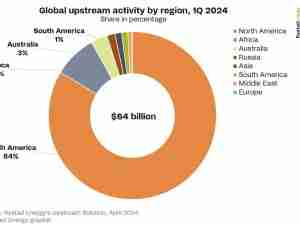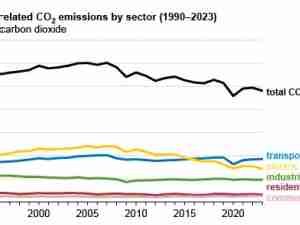President Joe Biden is expected to expand sanctions against Russia as soon as Wednesday, with new U.S. penalties hitting additional Russian elites close to President Vladimir Putin as well as the builder of the Nord Stream 2 pipeline, according to people familiar with the matter.
The penalties would be on top of the initial sanctions package announced Tuesday by the White House after Putin moved to recognize breakaway territories in Ukraine as independent states.
Implementation of the initial sanctions package and reports of additional steps to come battered the Russian markets, with the ruble on Wednesday extending declines to 81 per dollar, the weakest since March 2020.
Moscow has denied it plans to invade Ukraine, and Putin has said he doesn’t currently plan to send forces—he has called them “peacekeepers”—into the breakaway areas of eastern Ukraine, although the treaties he signed with the separatist leaders would allow him to do so and to build Russian bases.
The U.S. sanctions are expected to hit Nord Stream 2 AG, the company that built the $11 billion natural gas pipeline connecting Russia and Germany, according to the people, who asked for anonymity to discuss internal deliberations. Berlin moved Tuesday to halt certification of the project, a blow to Putin’s ambition to expand Russia’s hold on Europe’s energy supplies.
Last year, some diplomats at the State Department had recommended going ahead with sanctions on Nord Stream 2 AG and Matthias Warnig, its chief executive officer, only to be overruled by Biden, who argued doing so would alienate Germany and poison ties just as Washington needed Berlin’s help on issues including climate change, Iran and Russia.
But by imposing the sanctions now, Washington would complicate any future effort to bring the pipeline online and amplify Germany’s announcement on Tuesday. The sanctions could also mean that Republicans in Congress, led by Senator Ted Cruz, will stop blocking votes for several nominees for U.S. ambassador jobs and other senior State Department posts.
The White House declined to comment.
The European Union formally approved on Wednesday a package of sanctions including penalties on 27 high-profile Russians and entities that it said have threatened Ukraine, including government officials, senior military officers and three banks, but it has yet to publish the list.
The new U.S. penalties on additional members of Russia’s elite would expand the list of those within Putin’s inner circle facing new restrictions on where they can do business and travel. Biden telegraphed those additional sanctions in remarks Tuesday in which he denounced Putin as committing “a flagrant violation of international law.”
“They share in the corrupt gains of the Kremlin policies and should share in the pain as well,” Biden said of those around Putin.
State-Owned Banks
On Tuesday, the U.S. announced penalties targeting state-owned banks VEB.RF and Promsvyazbank, which the U.S. said hold more than $80 billion in assets and finance the Russian defense sector and economic development.
The actions already announced freeze the banks’ U.S. assets, ban Americans from doing business with them, cut them off from the global financial system and eliminate their access to the dollar.
The White House also announced that Promsvyazbank Chief Executive Officer Petr Fradkov and two Russian government officials—Sergei Kiriyenko and Aleksandr Bortnikov—would face personal penalties blocking them from the U.S. financial system, as would some relatives.
Biden said the U.S. would block the purchase of new issuances of sovereign debt, restricting Russia’s ability to secure Western financing.
Still, the sanctions package drew criticism from some lawmakers who said it fell short of the White House’s promise to impose dramatic consequences if Russian troops crossed the border into Ukraine.
Daleep Singh, the deputy national security adviser for international economics told reporters in Washington, on Tuesday that sanctions would escalate in the coming days.
“This was the beginning of an invasion, and this is the beginning of our response,” he said.
If Russia moves into Ukraine, White House officials have said they could target major Russian banks including Sberbank and VTB, as well as implement export control measures in coordination with a large number of allies and partners.
“We are ready to press a button to take action on the two largest Russian financial institutions, which collectively hold almost $750 billion in assets, or more than half of the total in the Russian banking system,” Singh said.


_-_28de80_-_939128c573a41e7660e286f3686f2a6e25686350_yes.jpg)







